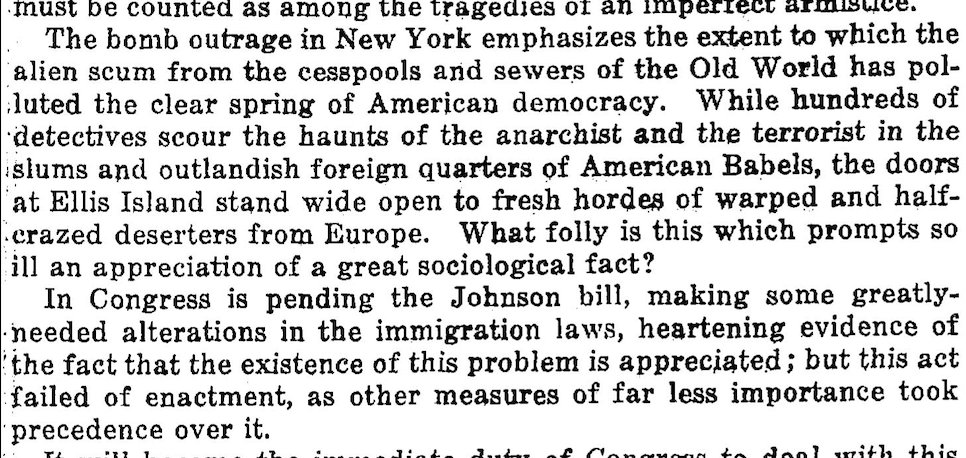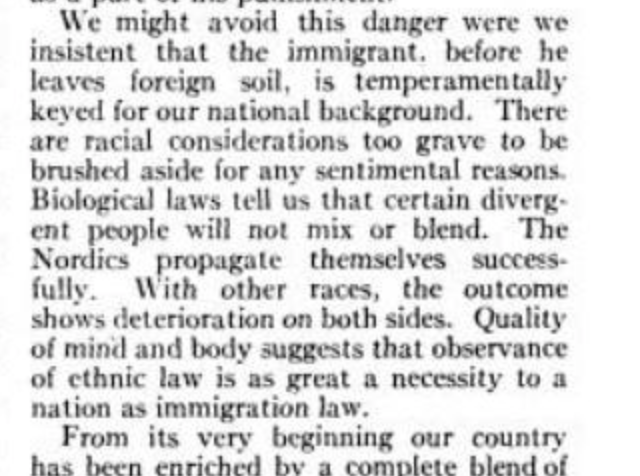Today is the 100th anniversary of the detonation of a bomb on Wall Street that killed 38 people & injured hundreds others. The perpetrators were never found, but the bombing would have both immediate & long consequences. 1/ 

For one thing, the bombing also would prove to be a boon to the career of an ambitious young FBI agent named J. Edgar Hoover, who at the time headed the DOJ’s so-called Radical Division. 2/ 

The bombing also would play into the anti-immigrant mood of the nation because almost immediately the search for a suspect turned to immigrants - Italian anarchists in particular but in the wake of the Russian Revolution also Jewish & other eastern European immigrants. 3/
Just four days after the bombing, the Washington Post published an incendiary editorial talking about how the bombing showed that “alien scum from the cesspools & sewers of the Old World” were destroying American democracy. 4/ 

The Post editorial in the wake of the Wall Street bombing also laminated the failure of efforts to restrict immigration but hoped that the next Congress would take action. 5/
A few months later, incoming vice president Calvin Coolidge joined the chorus for immigration restrictions in an article published in Good Housekeeping. Among his reasons was that “biological laws tell us certain divergent people will not mix or blend.” 6/ 

All this played right into the hands of Congressman Albert Johnson (R-WA), chair of the Immigration and Naturalization Committee and a notorious racist & anti-Semite, who had been pushing for immigration restrictions for some time. 7/ 

And in May 1921, Congress passed the Emergency Quota Act which not only cut immigration by more than 2/3 but for the first time imposed quotas for each country. The act passed with little dissent, winning 90 votes in the Senate & passing without a recorded vote in the House. 8/
Those quotas would cut immigration from Poland by 70% and from Italy by 82%. Though they were only temporary, they would be made permanent and even more restrictive in 1924 - marking a 45 period in which the US saw almost no immigration. 9/
Fyi, remnants of the bombing still can be seen on the side of the old J.P. Morgan building on Wall Street in lower Manhattan - a defiant J.P. Morgan refused to have them removed. 10/ 

• • •
Missing some Tweet in this thread? You can try to
force a refresh









